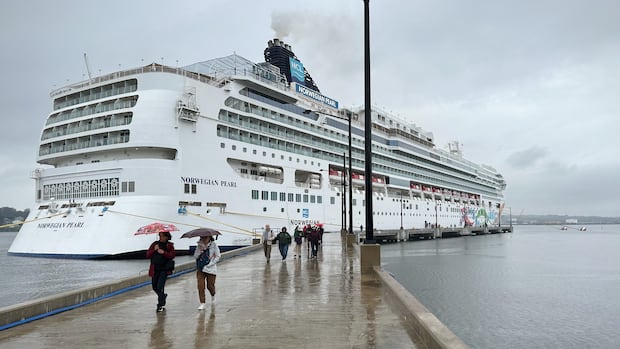Cruise ships visit Halifax daily during much of the year, each spewing a town's worth of people — and a town's worth of pollution — into the city while docked in the port.
"At some point, you know, just a blue cloud of smoke will waft over the three blocks or four blocks around the port," said Brent Dancey, director of marine climate action at the conservation group Oceans North.
Local residents have complained about it in Halifax and other Canadian cities, such as St. John's .
There is a solution: Plugging the ship into the local grid through a connection known as shore power, so it doesn't have to keep burning fuel to power the ship while docked.
Here's a closer look at this technology, its potential impacts and what that means for the recently fast-tracked port expansion in Montreal and proposed expansion in Churchill, Man .
What exactly is shore power?
Ships burn heavy fuel oil and marine diesel oil, producing hazardous pollutants like fine particulate matter and greenhouse gases.
Besides propelling the ship, burning fuel generates electricity necessary to keep a cruise ship habitable for up to 5,000 passengers or refrigerate an entire container ship's loa
Continue Reading on CBC News
This preview shows approximately 15% of the article. Read the full story on the publisher's website to support quality journalism.
